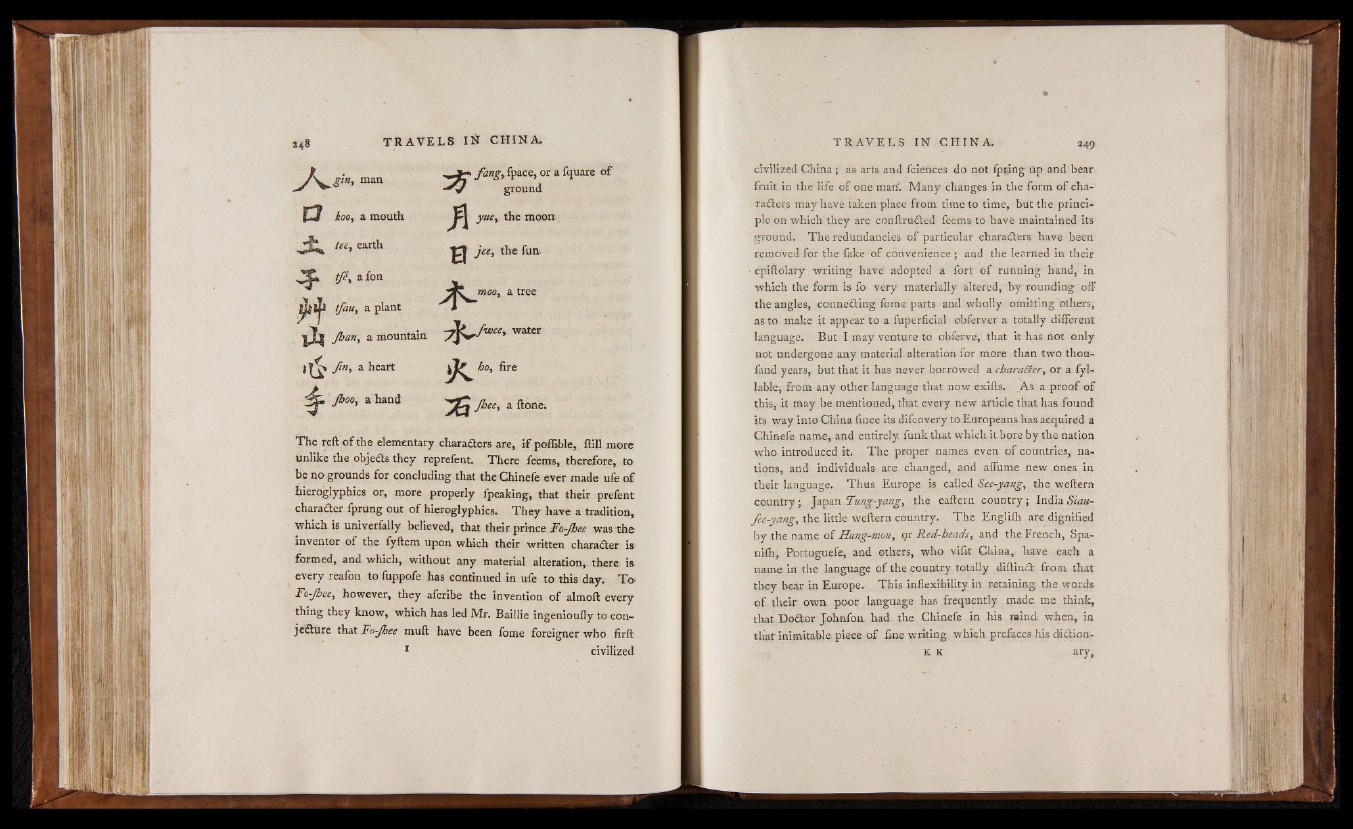
J s ^ g in , man ^ ^ g r a
a koo, a mouth ^ yue, the moon
t o , earth y'ii} the fun.
£/£■', afon
»2(30, a tree
tfau, a plant
Jhan, a mountain water
fin , a heart (&o, fire
>
^ > ° > a hand Jhee, a ft one.
The reft o f the elementary charaaers are, i f poiEble, ftill more
unlike the objeas they reprefent. There feents, therefore, to
be no grounds for concluding that the Chinefe ever made ufe o f
hieroglyphics or, more properly fpeaking, that their prefent
charaaer fprung out o f hieroglyphics. T h e y have a tradition,
which is univerfally believed, that their prince Fo-Jhee was the
inventor o f the fyftem upon which their written charaaer is
formed, and which, without any material alteration, there is
every reafon to fuppofe has continued in ufe to this day. To-
Fo-Jhee, however, they aicribe the invention o f almoft every
thing they know, which has led Mr. Baillie ingenioufly to con-
je au re that Fo-Jbee muft have been iome foreigner who firft
1 civilized
civilized China ; as arts and fciences do not fpging up and bear
fruit in the life o f one man'. Many changes in the form o f charaaers
may have taken place from time to time, but the principle
on which they are conftruaed feems to have maintained its
ground. The redundancies o f particular charaaers have been
removed for the fake o f convenience ; and the learned in their
- epiftolary writing have’ adopted a fort o f running hand, in
which the form is fo very materially altered, by rounding off
the angles, conneaing fome parts and wholly omitting others,
as to make it appear to a fuperficial obferver a totally different
language. But I may venture to obferve, that it has not only
not undergone any material alteration for more than two thou-
fand years, but that it has never borrowed a charaSter, or a fyl-
lable, from any other language that now exifts. As a proof o f
this, it may be mentioned, that every new article that has found
its way into China fmce its difcovery to Europeans has acquired a
Chinefe name, and entirely funk that which it bore by the nation
who introduced it. The proper names even o f countries, nations,
and individuals are changed, and affume new ones in
their language. Thus Europe is called See-yang, the weftern
country; Japan Tung-yang, the eaftern country; India Siau-
fee-yang, the little weftern country. The Engliih are dignified
by the name o f Hung-mou, or Red-heads, and the French, Spa-
ni-fh, Portuguefe, and others, who vi-fit China, have each a
name in the language o f the country totally diftindt from that
they bear in Europe. This inflexibility in retaining the words
o f their own poor language has frequently made me think,
that Dodtor Johnfon had. the Chinefe in his mind when, in
that inimitable piece o f fine writing which prefaces his didtion-
K K ary,